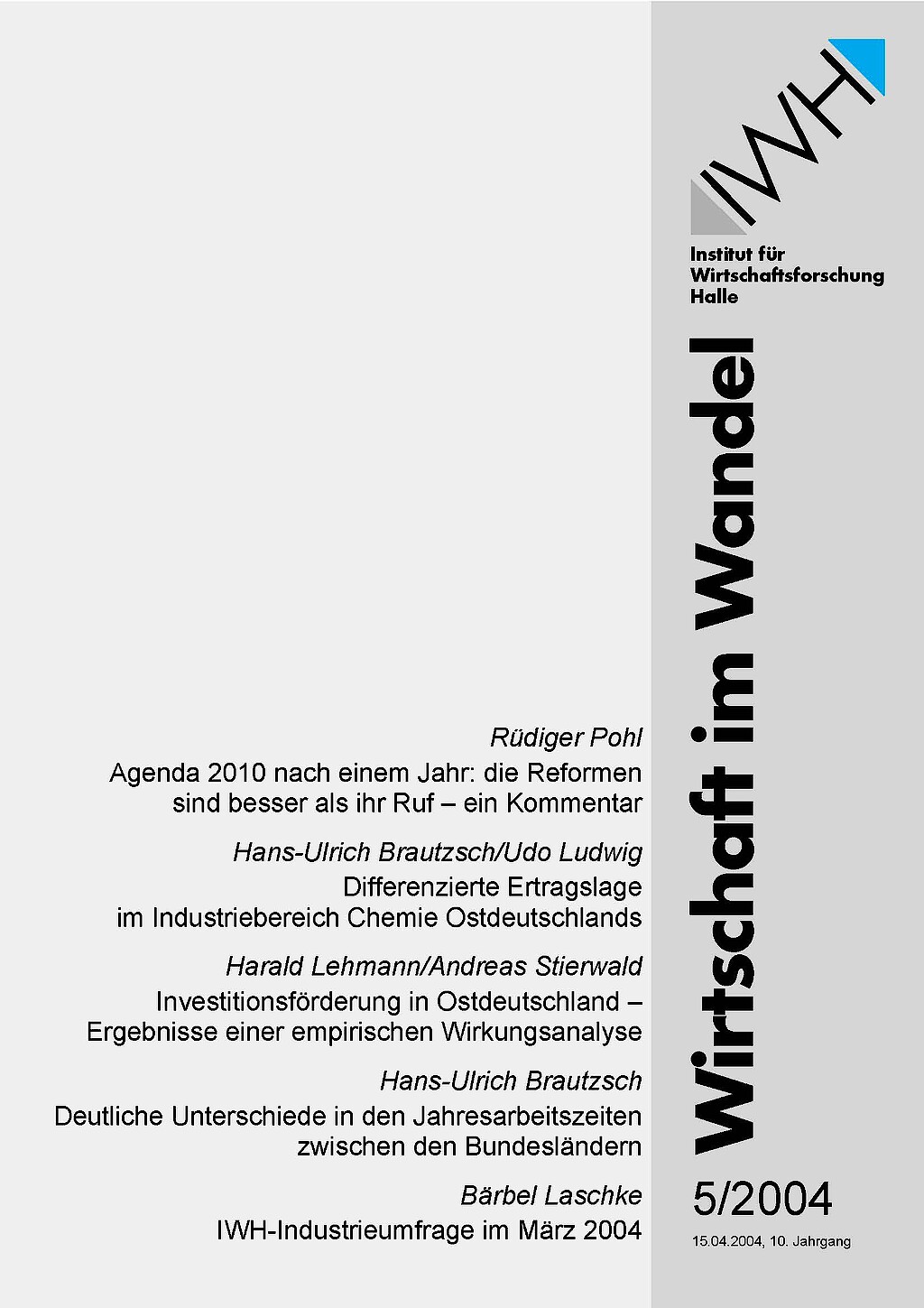
A Commentary - Agenda 2010 after the first year: reforms are better than their reputation
Zugegeben: eine Goldmedaille wird die Bundesregierung mit ihrer Reformpolitik nicht gewinnen. Die Reaktionen in der Öffentlichkeit sind negativ. Reformgegner organisieren Demonstrationen. Reformbefürworter führen eine lange Mängelliste an. Die Reformen gehen nicht weit genug. Warum, zum Beispiel, wird die demographisch gebotene Anhebung des Renteneintrittsalters immer noch verzögert? Die Reformen sind nicht umfassend genug, manche Reformfelder werden tabuisiert. Warum, zum Beispiel, soll das überkommene System der Tarifverträge unangetastet bleiben, weshalb ist keine Korrektur der Mitbestimmung erlaubt? Die Regierung handelt zudem widersprüchlich. Warum, zum Beispiel, greift sie zu dem untauglichen Instrument der Ausbildungsplatzabgabe, die den Lehrstellenmangel nicht an der Wurzel bekämpft? Strafmaßnahmen dieser Art sind das Gegenteil von Entlastungen, die in der Reformagenda als Voraussetzung für die Dynamisierung der Wirtschaft erkannt werden. Nicht nur die Regierung steht mit ihren Reformen im Kreuzfeuer. Sobald die Opposition ehrgeizige Reformpläne schmiedet, sieht sie sich ebenfalls massiver Kritik ausgesetzt.




